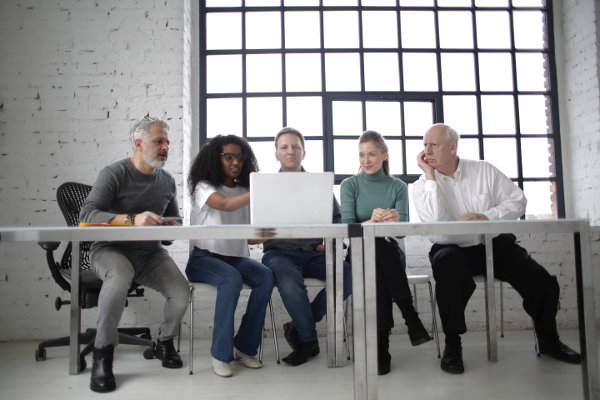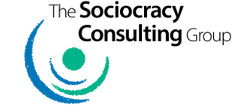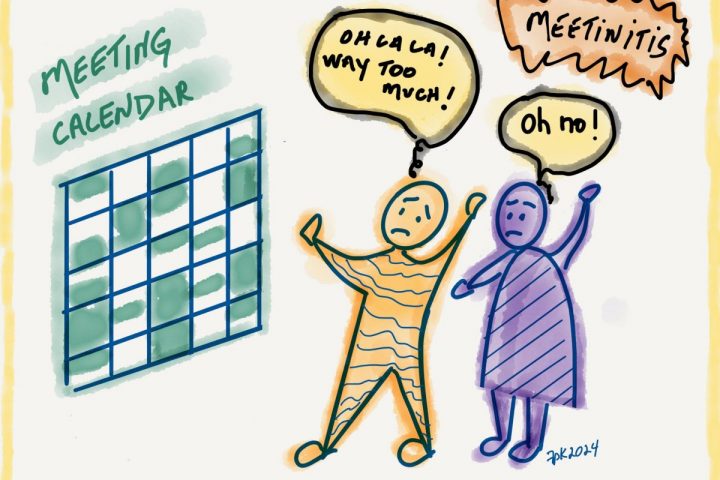 As the COVID-19 pandemic unfolds many businesses are being forced to make hard decisions. Not only are teams working remotely, leadership is triaging financial bleed through staff layoffs and restructuring.
As the COVID-19 pandemic unfolds many businesses are being forced to make hard decisions. Not only are teams working remotely, leadership is triaging financial bleed through staff layoffs and restructuring.
In many companies with a traditional top-down organisational structure, managers alone make these decisions without broad team consultation. Workers lower on the ladder have little say about what happens to their job, their team, and the company for which they work.
In addition to the effects on individuals who are laid off, these changes have large impacts on the business as a whole. Staff loss immediately means lost experience and knowledge. Restructuring can be disorienting and creates productivity lag.
These impacts are even more dramatic when workers have little opportunity to contribute to the best next steps.
Here’s why.
Critical perspectives and feedback are ignored – The knowledge and awareness of leadership teams and managers only goes so far. Frontline on-the-ground workers have perspectives different from those higher up. Leaders and managers may be working with partial understanding of processes while carrying multiple responsibilities – blocking their real-time awareness of what’s happening in the organisation. They miss out on creative ideas on how a team might minimise staff cuts. The team is now at lower capacity, grieving sudden shifts, and needing to be doubly productive. This is a recipe for overwhelm and overload.
Heavy responsibility about staff cuts can be traumatic – Having to decide who loses their income in an environment of escalating unemployment rates is hard. Especially when staff are well-regarded co-workers and colleagues. If these decisions have to be made on a broad scale, the emotional impact can be great. Concentrating decision-making about the many on just a few managers is a heavy burden to bear. This then can negatively impact the managers’ capacity to make clear and appropriate decisions for the whole, potentially creating more problems to resolve down the line.
Opportunities for emergent response to crisis are lost – When times are tough, creative and unexpected ideas often emerge as a critical piece for moving forward in an appropriate way. Every person in a company potentially carries creative ideas and possibilities that could benefit the business’ movement forward. By not having frameworks to harness this creative energy, teams and companies suffer, losing out on opportunities that lead to different and more productive outcomes.
When the USA’s Creative Urethanes1 went through the 2008 global financial crisis, they were pushed to the limit. With sales down 50% and the CEO Richard Heitfield shocked and immobilised by the situation, the employees sprang into action creating a plan that everyone could accept.
Success stories from hard decisions shared by Creative Urethanes at this time give a sense of the positive outcomes. For example, their management-employee group discussed who should stay and who should be laid off. People said things like, “If I leave, it will be tight for us for a while, but my last child has finished college and we will be okay. Whereas Joe, here, has a new baby, and needs the income from this job”. The people who were laid off came back to visit for periodic coffees with the people still working there.
Similarly, the Netherland’s Endenburg Elektrotechniek2 achieved positive outcomes by sharing hard decisions in 1976. The Dutch shipping industry shut down rapidly due to an international oil crisis, impacting the half of Endenburg Elektrotechniek’s workforce who were working on ship electrical systems. A machinist in the company’s specialized fabrication shop had an idea for another solution besides layoffs for his shipping colleagues. His idea went through the linked circles to the Board, who valued the approach with modification and agreed to immediate action. The shipyard electricians were trained with a crash sales course, and went out in suits and ties to drum up more business. The business stayed afloat – maintaining skilled workers, diversifying their client base, and generally emerging stronger as a result of the crisis.
Adaptive and responsive approaches are critical in times of crisis. Effectively embracing creativity within and throughout teams is invaluable. Doing this with transparency and equivalence for those involved provides psychological safety and system safeguards to ensure care for both individuals and the greater organisation.
Processes and structures reliably serving these needs include consent decision-making, opening and closing rounds in meetings, representatives linking teams, and consent-based selection for people in roles. All of these increase collective intelligence to create decisions that are good enough for now and safe enough to try until more stable conditions occur.
Learn more about adaptive organisations in our whitepaper 5 Pitfalls of a Top-Down Hierarchy and What to Do About Them, by Sheella Mierson, Ph.D. And get support to maintain rigor and effectiveness when hard decisions need to be made with coaching for Responsive Online Teams.
References
1 See article, “US Employee Engagement a Mere 32%, But The Sociocracy Consulting Group Finds It Can Be Raised,” by Sarah Lozanova (2015).
2 See “We The People: Consenting to a Deeper Democracy,” by John Buck and Sharon Villnes, 2nd Edition, Sociocracy.info (2017), pp. 60-61.
 Erin Young helps purpose-led enterprises turn inspiration into positive impact with sociocracy and social permaculture. Consultant, trainer, mediator, and facilitator, Erin is based on the Sunshine Coast, Queensland, Australia.
Erin Young helps purpose-led enterprises turn inspiration into positive impact with sociocracy and social permaculture. Consultant, trainer, mediator, and facilitator, Erin is based on the Sunshine Coast, Queensland, Australia.



